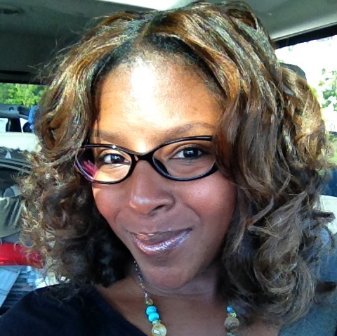
Growing up in Evanston, Tanika Island Childress spent her evenings at the kitchen table hearing her single mother describe her work as a teacher and absorbing her zest for life. Yet, it wasn’t until adulthood that Childress fully awoke to the gap between Evanston’s promise of respect for differences and the reality that for 35 years, her mother had been teaching special-education classrooms almost entirely full of Black boys who had been labeled and isolated from their peers. Inspired by her mother’s fierce commitment to fighting for her students, she embarked on a lifelong journey to develop the innate excellence of young Black children.

As a teacher, principal and now interim leader of the University of Chicago Charter School network, Childress has supported thousands of children from Chicago’s South Side to reach their potential. Freelance writer Katelyn Silva talked with Childress about the vision, mission and strategies that have guided her work.
Q: What did you learn from your mother about how to be a teacher?
A. My mother taught me the power of relationships. She would bring her students home to spend time with us. She had the patience of Job on behalf of her students and their families. They trusted her. She was committed to ensuring they were respected and loved, and most of all, taught. She was a voice for the voiceless in a district that appeared to be supportive, but when you have close to 100 percent self-contained all-Black, something happened, something’s not right, you know? Students of color were being disproportionately labeled. She inspired me.
Q: The North Kenwood/Oakland campus had exceptional results when you were principal. How did you make that happen?
A. I spent a lot of time building culture: a culture of belief, a culture of accountability and a culture of teaching and learning, always balanced by a culture of love and respect. If teachers assigned a low-level task, I’d ask, “Why? Do you not believe they can do it?”
We had lots of conversations about race, class and culture. We always asked our staff, “What do you believe?” Because your belief system will determine how you design instruction for students. Your belief system will impact every interaction you have with a student, how you speak to and treat families, and how you think about them when they’re not in front of you. I needed our entire staff to know those things mattered.
I’ve always had a covert and overt mission. The overt mission being achievement. We did that. But the covert mission was that everyone be a better human being because of their experience at NKO — every kid, family member, teacher and leader. I did a lot of professional development around self-help and mental wellness, as well as academics, for teachers. I knew how important it was for people to be well and whole in front of their children. Our children are bringing a lot into the classroom, and they can’t afford for their teachers not to be well and whole.
Q: With four South Side campuses, the University of Chicago Charter School serves predominantly low-income students of color. Why was it important to you to serve Black students from less-affluent backgrounds?
A. It was important to shift the narrative that
being Black or not having access to resources and
opportunities meant that you were destined to a certain life. I had to play my part in changing that narrative.
When my fifth-graders at North Kenwood-Oakland, all Black, most from low-income backgrounds, outperformed the state and the nation in mathematics, I was like, “Drop the mic. Boom. Pow. You see it?”
Q: Your daughter Nandi is now in junior high school, but when you were principal of NKO, she went there. Why?
A: If I didn’t lead a school that I was proud enough to send my own child to, why should anyone else send theirs? I knew that if I hired a teacher and Nandi couldn’t have that teacher, then no child could. A new teacher came in and there were rumbles about whether that teacher had what it takes. I said, “Put Nandi in his room.” To this day, he is her favorite teacher.
Q: While some people view charter schools as controversial, others believe they provide quality options to parents. What are your thoughts and feelings on that?
A: Not all charters are great, but charters get a bad rap because they’re intentionally pit against unions. All teachers and leaders, charter and otherwise, want the same thing: the best for students and the
resources to get there.
Being a charter gave NKO flexibility in terms of curriculum, time in the day, where teachers spend time, how they plan and work together, what professional development for teachers would look like. We had time for teacher learning twice a week and that was unheard of. But that was a commitment our teachers wanted to make because of the mission.
Our mission was coupled with the flexibility and autonomy within our framework to create the space to think and do differently. All we needed was that space to be successful. I don’t know that we could have achieved what we did otherwise.
Q. How did you feel when asked to take over interim leadership of all four of the University of Chicago charter campuses?
A. I never felt like I was quite ready or knew enough.
I’m feeling inadequate, right? But I knew my commitment to our kids and our families and ensuring that they receive nothing but our best. I knew I wanted to set the bar for our kids and teachers and make it clear. I love to spend time in kid and teacher spaces, helping them be exceptional. So, I told myself, “All right, here we go. Let’s go! I’m going to do this director thing.”
Education Post (educationpost.org) is a nonprofit, non-partisan communications organization dedicated to building support for student-focused improvements in public education.